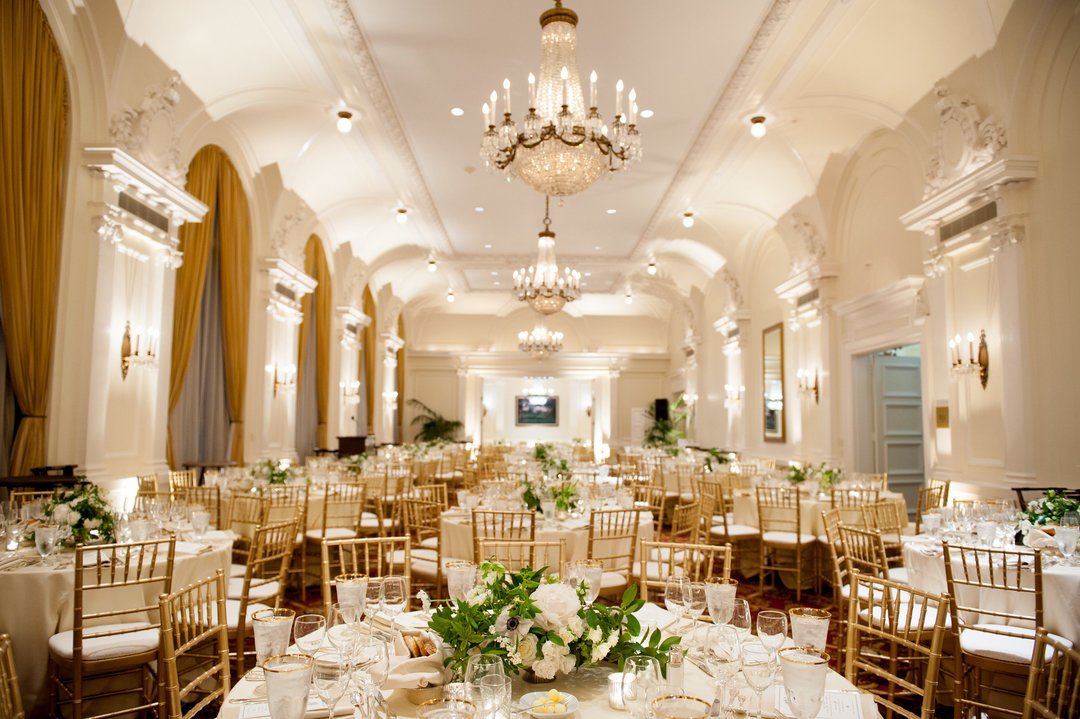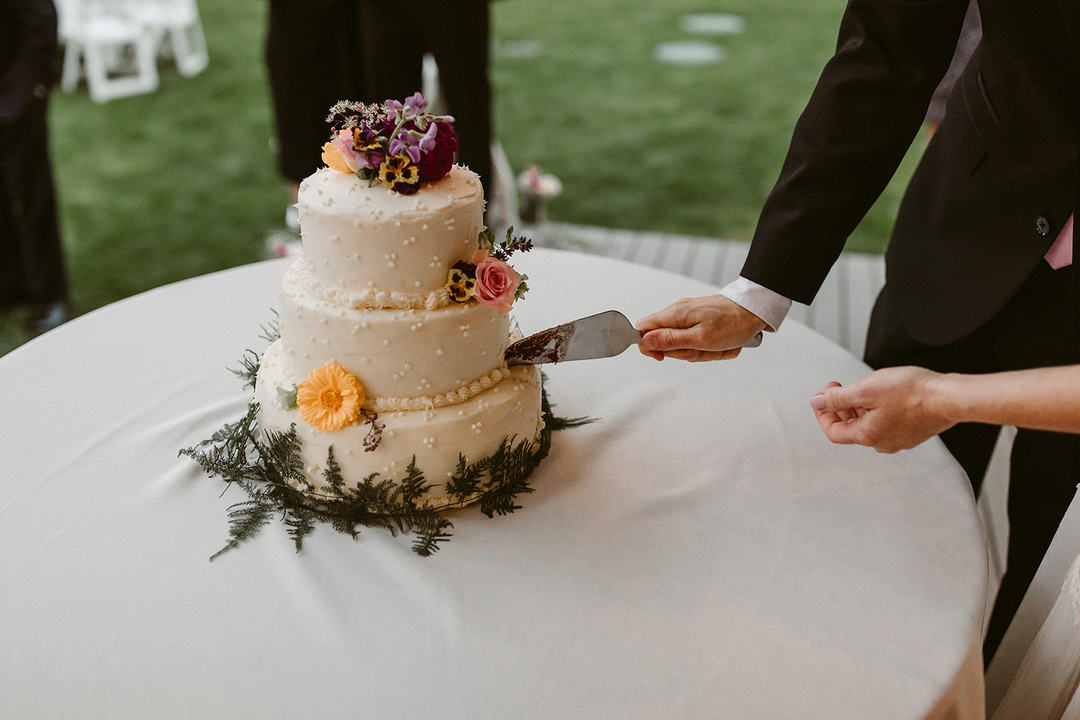- Expert advice/
- Wedding planning 101/
- Creating a budget/
- How to Negotiate With Wedding Vendors
- Creating a budget
How to Negotiate With Wedding Vendors
Wedding vendors make up the majority of a wedding budget. Find out how to negotiate with wedding vendors with our guide.
Last updated February 5, 2024

There are few events more momentous, elaborate, and downright expensive than a wedding. So, couples should begin planning far in advance—ideally several months to a year before their wedding date—to ensure that all of their bases are covered. The bulk of these bases include hiring vendors. This is also where the bulk of your wedding budget will go. There are plenty of ways to stick to or even fall below your budget. Here are a few effective ways to negotiate with your wedding vendors and discuss budget productively.
Understand your timeframe.
Your wedding planning timeline will determine a lot about how much room you have for negotiations. Do you have two years to plan or just six months? There are likely more limitations with shorter turnarounds. Think about plane tickets: The prices go up the closer you book to your departure date. That’s certainly not to say don’t bother trying to negotiate if you don’t have a full year to plan, but keep your expectations in check.
It’s also important to keep in mind that, no matter how much time you have to plan, hundreds of other couples living around you are also planning their weddings. Any of them could snatch up a wedding vendor that you’d ideally like to have for your big day before you. That said, be decisive and don’t hesitate.
Do your research.
Before you contact any potential vendors, make sure you do your research. Start searching for local vendors in your wedding location. Ask family members, friends, and colleagues for recommendations. Then, read reviews. This will help guide you in the right direction as far as the offerings, quality, and caliber of a vendor.
In addition to checking vendor reviews, also research average prices for specific wedding planning services. You need a realistic starting point so that you go into your negotiations confidently and thoughtfully. Ask your loved ones what they spent on flowers, for example, to get a solid range to run with.

Reach out to potential vendors.
Once you whittle down your options to a solid list of ideal vendors, we recommend drafting a request for proposal (RFP). An RFP is basically an outline that includes details about your wedding, the date, your budget for this specific service, and your expectations for the vendor. You can email this directly to each of your vendors or you can draft an email that contains all of the same information. Typically, you can expect vendors to request phone or in-person meetings to discuss further. If time is of the essence, pick up the phone first.
No matter how you reach out, be sure to have the following information ready:
- Wedding date and time
- Wedding location and venue (if you know it)
- Your budget for this service
- Services you hope to receive from the vendor (be specific)
NOTE: This is not the time to start negotiating! You need an overview of potential services and standard pricing from your vendor to start.
Be upfront about your budget.
To ensure you’re making the most of your time, as well as your potential vendor’s time, it’s best to be as upfront as possible about your budget. Be honest with the amount of wiggle room (or lack thereof) that you (and they) have to work with.
This is where that research comes in. Don’t waste time with vendors that are clearly outside of your budget limits. If you’re doing a mostly DIY wedding, for example, a luxury florist is probably not right for you. Also, be considerate and thoughtful. A vendor’s pricing is usually indicative of their experience, skill level, and the actual costs of running their business.
On the vendor side, make sure they don’t brush your budget aside or say something like “we’ll work out the details later.” Be upfront with them so that you’re not being lead on by a vendor outside of your desired pricing. This can be a bit uncomfortable if you’re not used to negotiating on a daily basis, but be firm about the number you’re comfortable with so that you’re making the best use of your time and energy.
Get multiple quotes.
As you send RFPs and begin your vendor discussions, make sure you collect quotes from several vendors for each service. This will help you find the best-priced option. Not all vendors price and work the same—some offer packages, others offer a la carte services. Be sure that you’re comparing the same service levels among your vendors so you can get an actual price difference to plan with.
Negotiate with the right vendor.
Not all vendors are going to be open to changing their prices. An in-demand wedding pro during peak wedding season isn’t likely open to bargaining. However, if you find a talented, but newer vendor via a recommendation, you may have a better shot. These vendors want to build their portfolios so they may bend a little if it means filling their calendars. Be conscientious about a vendor’s experience and the season. You don’t want to insult anyone by requesting a sub-par rate.

Be willing to compromise.
OK, now it’s time to actually negotiate. Compromise is key—no one wants to work with inflexible people. Once you receive responses to your RFPs or you receive an actual contract, read it closely. Look for areas of work or service that you don’t need or can substitute for another offering.
For example, if your ideal wedding photographer’s rate is slightly higher than you hoped, consider compromising on the hours they work. If this isn’t one of your top priorities, ask if they could start work an hour later or leave an hour earlier. Or, maybe you can skip out on any framing or wedding book designs and simply receive image files that you can turn into keepsakes later.
NOTE: Only compromise if your budget and their pricing fall within a close range.
Ask for extras.
If your vendors can’t come down in price, see if they can stretch their price for more service. Small service upgrades are usually more widely accepted by vendors than accepting less money. Venues, for example, often come with a base price they need to cover. So, price reduction isn’t an option, but add-ons for a low or no cost are possible.
As another example, your bar vendor may throw in a champagne toast (or two!) if you meet your bar package minimum. Your DJ may be able to bring a variety of lights to jazz up the dance floor. The worst they’ll say is no so it doesn’t hurt to ask.
Don’t haggle.
Compromise is one thing, but haggling is another. Vendors are prideful of their companies and what they offer. If their prices are too high or compromising doesn’t work, move on. There is no reason to get aggressive with them or be overly demanding. If it’s not coming together, don’t stress about it.
Your vendors will be a major part of the most important day of your life. You want to not only be happy with the services they provide, but feel good about their participation in your wedding day.
- Expert advice/
- Wedding planning 101/
- Creating a budget/
- How to Negotiate With Wedding Vendors
Find even more wedding ideas, inspo, tips, and tricks
We’ve got wedding planning advice on everything from save the dates to wedding cakes.
